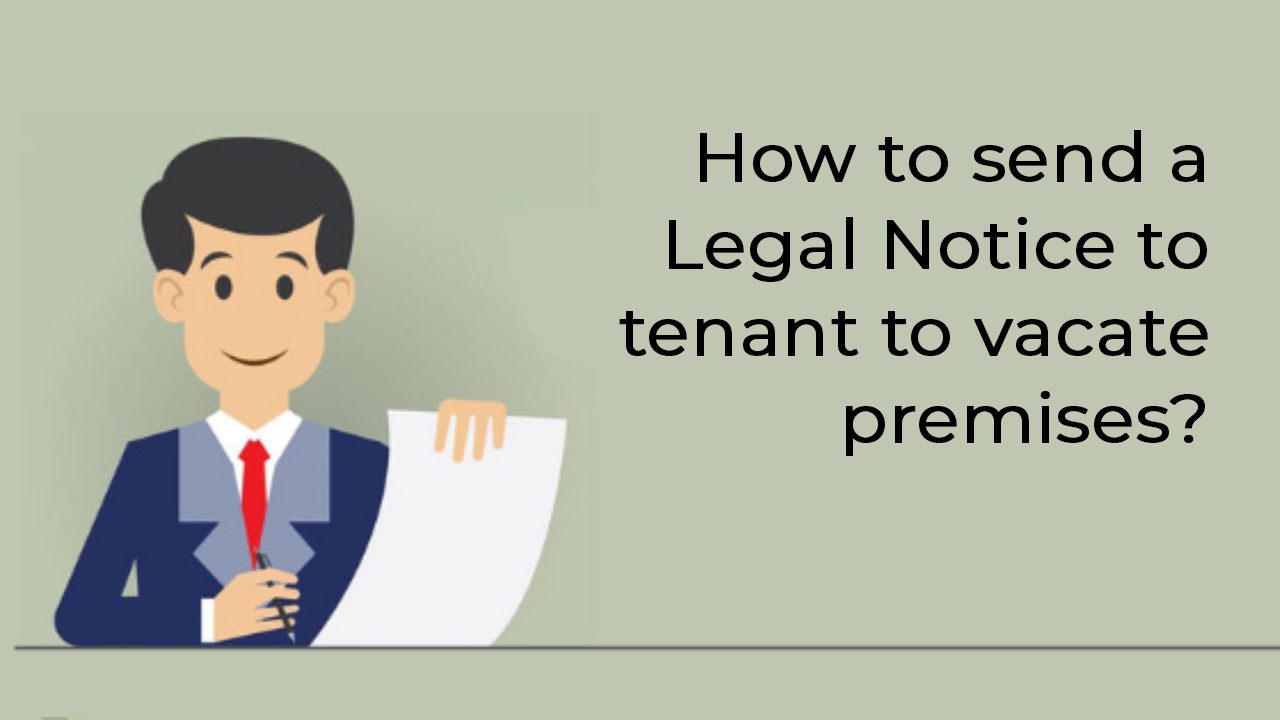Owning extra houses and earning rental income from those houses is considered a good source of passive income. However, if proper steps are not taken, this easy source of income can turn into a nightmare. Especially if you happened to deal with irresponsible tenants.
Why send notice to vacate premises?
Sending an eviction notice to the tenant by the landlord in India is a formal intimation. A legal notice to the tenant to vacate the premises from the landlord is assumed as an opportunity for the tenant to find a new place. Notice to tenant to vacate is a situation where a tenant is given a reasonable time to leave the rented place and find a new one. In order to vacate the rented property, a legal notice works really well.
In any tenancy, the situation gets worse for a landlord when the tenant is a bully. Such tenants do not want to leave the premises and create an uncalled nuisance for the landlord. India is one such place where such issues are quite prevalent. The tenant forcefully stays in possession, thereby inviting the landlord to exercise the right to file a suit for eviction against the tenant. But before filing a suit, the landlord should first send notice to the tenant to vacate the premises.
People living in a flat provided by their employers often rent it in the hope of some extra income. However sometimes it gets difficult to dispossess the tenant from the property even after sending flat-vacating notice to the tenant. In this scenario, the landlord should not get worried too much. He/She can always consult a good advocate for evicting the tenant after fulfilling all the requirements of the notice. This is where tenant eviction notice is of prime importance.
India follows certain rules and regulations when it comes to handling such legal matters, and there are various templates of such an eviction format available online today. When this kind of situation arises the landlord should consult a good advocate and send a properly drafted notice letter to tenant to move out written in a specific format.
Frequently Asked Questions:
1. How many days notice should a tenant and landlord give each other?
A tenant must give at least 21 days’ written notice to end the tenancy unless the landlord agrees to a shorter time. This agreement should be in writing. A landlord must give at least 90 days’ written notice to end the tenancy. Landlords can give less time (at least 42 days’ notice) in some cases.
2. What can you do if a tenant is not vacating?
Send a legal notice to your tenant asking him/her to pay the arrears of rent or to vacate within a month. The tenant has to pay rent in the court, once it is assessed by the cour. In case he/she fails, it calls for immediate eviction.
3. What happens if a tenant refuses to move out?
If the tenant fails to pay, the landlord can terminate the lease after the notice period has expired. If the tenant refuses to vacate, the landlord must file an “unlawful detainer” action, commonly known as eviction, with the local courthouse.
4. Can a landlord evict a tenant without going to court?
If the tenant does not move out by the end of the notice period, the landlord can have him served with court papers. But a landlord cannot legally evict the tenant without a court order.
5. What are the tenant’s rights when the landlord sells the property?
Tenants have the right to remain in a property for the term of their lease after ownership has changed hands. Month-to-month tenants are less secure and may be given notice to move, with 30 – 60 days’ notice.
6. Do I need an attorney to evict a tenant?
Technically, a lawyer is not required to evict a tenant. However, a single mistake can delay the eviction proceedings and even require the landlord to start the process afresh. So the possible consequences of a mistake made by a layperson/landlord may outweigh the cost of counsel.




